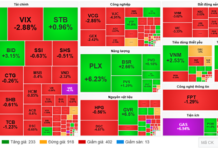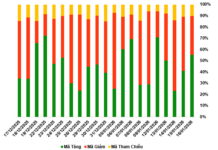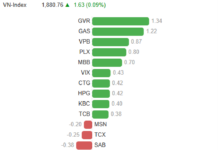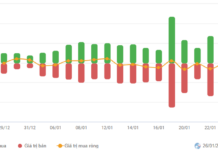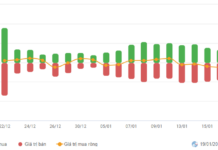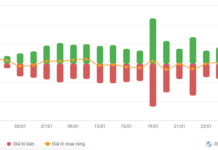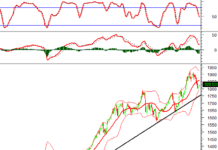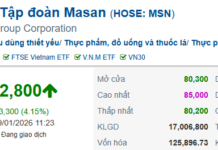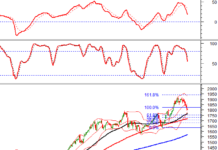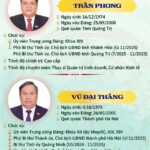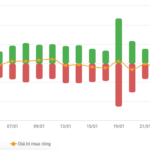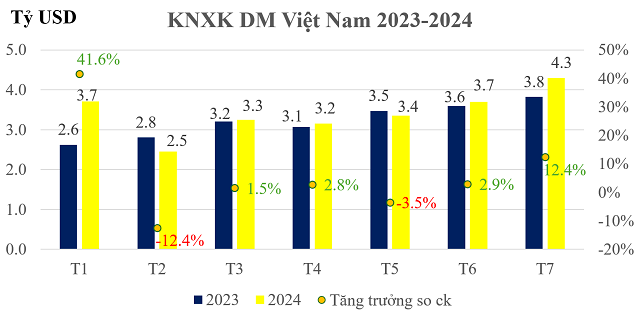
Source: Vietnam Customs
|
Preliminary statistics from Vietnam Customs show that the textile and garment export turnover of Vietnam reached US$4.29 billion in July 2024, up 12.4% over the same period last year and up 16.1% compared to the previous month.
Accumulated in the first seven months of the year, textile and garment exports reached US$23.9 billion, up 5.9% over the same period. Of which, yarn and fabric exports reached US$2.53 billion, up 3.5%; textile and garment exports reached US$20.2 billion, up 6.3%; fabric pieces and other technical fabrics reached US$458 million, up 18%; and accessories, textiles, leather and footwear reached US$878 million, up 11.4%.
Currently, Vietnam exports textiles and garments to 113 countries and territories, but the main export markets for Vietnam’s textile and garment industry are still the US, EU, Japan, South Korea, and China.
According to information from the Vietnam Textile and Apparel Association (VITAS), the textile and garment industry in Bangladesh – the world’s second-largest exporter of textiles and garments (only after China) is facing difficulties, many Bangladeshi textile and garment exporters are experiencing a decrease in the number of orders by 25-40%, In addition, for many reasons, they are also under pressure from temporary reductions in production capacity and wage increases for textile and garment workers, which will reduce the competitive advantage of labor costs…
Vietnamese textile and garment enterprises need to take advantage of their competitive advantages. From now until the end of the year is the peak shopping season, enterprises are making efforts to introduce new products in terms of materials and designs, meeting the strict standards of partners, to achieve the industry’s export target of US$44 billion in 2024.
To achieve the above goal, in the coming time, textile and garment enterprises need to diversify markets, diversify customer segments and products, and increase competitiveness. Especially, how to take advantage of the opportunities brought about by free trade agreements.

